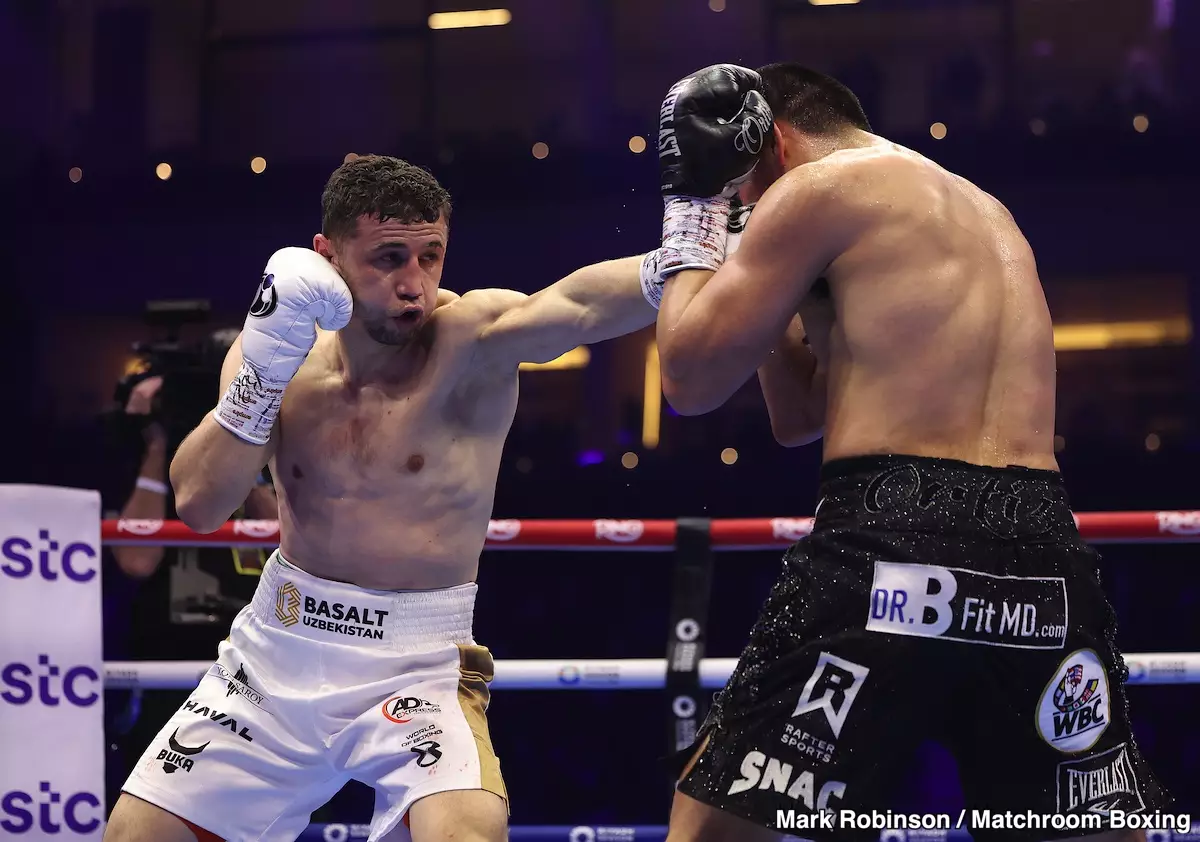On a noteworthy night in Saudi Arabia, the much-anticipated bout between WBC interim junior middleweight champion Vergil Ortiz Jr. and Israil Madrimov offered spectators a thrilling 12 rounds filled with skill, resilience, and diverging strategies. Ortiz Jr., boasting an impressive record of 23-0 with 21 knockouts, faced an equally determined Madrimov, who came to the ring with a record of 10-2-1 and seven knockouts to his name. Although Ortiz Jr. secured a unanimous decision victory, the match was not without controversy and left many questioning the integrity of the scoring.
As the fight progressed, both competitors showcased their strengths, but it was Madrimov’s initial effectiveness that set the tone. His agile movement and powerful punches allowed him to outpace Ortiz Jr. in the early rounds, where he seemed to control the tempo with relative ease. Observers noted that Ortiz Jr. appeared to struggle against this style, and the swelling around his eyes by the end of the match provided a vivid testament to the punishment he’d absorbed alongside his moments of success.
The fight’s narrative shifted dramatically in the second half. While Ortiz Jr. was under pressure and appeared to trail in scoring, Madrimov showed signs of fatigue. This was a pivotal moment in the bout, one that Ortiz Jr. capitalized on effectively. As Madridov slowed, Ortiz Jr. pressed forward, displaying greater aggression and power, ultimately dominating the action for several rounds.
The judges ultimately scored the fight 115-113, 115-113, and 117-111 in favor of Ortiz Jr., but many—including seasoned viewers of the sport—felt these scores did not accurately reflect the contest. Many analysts suggested that a score of 7-5 in favor of Madrimov was reasonable based on the first six rounds, where he had demonstrated superior technique and ring control. The judges’ preference for Ortiz Jr.’s pressure over Madrimov’s clean punches ignited discussions about the subjectivity of ringside scoring and its implications on fighter reputations.
In a post-fight interview, promoter Oscar De La Hoya articulated his perspective on Ortiz Jr.’s performance, asserting that the young fighter was effective in timing Madrimov and executing his game plan. He focused on the power of Ortiz Jr.’s punches, indicating that Madrimov’s inability to withstand Ortiz Jr.’s power was a telling factor contributing to the result. However, this perspective elicited disagreement from critics who felt that De La Hoya’s appraisal overlooked the reality of the rounds being fought.
De La Hoya maintained that he didn’t perceive Ortiz Jr. as struggling early, which seemed at odds with the observations of many fans and commentators who noted Ortiz Jr.’s difficulty in connecting effectively and his vulnerability to Madrimov’s attacks. Despite this contrast, De La Hoya labeled the victory as a critical win for Ortiz Jr. while pushing for future lucrative matchups that could elevate his fighter’s standing in the sport.
Looking towards future matchups, De La Hoya mentioned a potential fight with Terence Crawford, arguing that the circumstances have changed with the involvement of new promoters and networks. However, such statements were met with skepticism by boxing analysts. The likelihood of Crawford, who has proven to be selective in his battles, stepping into the ring with an up-and-coming prospect like Ortiz Jr. seems slim, particularly after his lucrative bout with Canelo Alvarez.
The fight between Ortiz Jr. and Madrimov not only showcased the grit and skill of both fighters but also revealed underlying issues in boxing, particularly in terms of judging and promotional realities. Additionally, it brought forth the challenges that lie in obtaining significant matchups against established champions who may prefer to sidestep risks for greater rewards.
While Vergil Ortiz Jr. emerged victorious on that night in Riyadh, the contentious nature of the fight serves as a stark reminder of the complexities of boxing—a sport where merit does not always equate to reward, and where the path to greatness is fraught with uncertainties. The future may hold many challenges, yet Ortiz Jr.’s resilience and ability to adapt could pave the way for a meaningful legacy in the ring.

